Williamsburg’s Three Kings Parade Lives on, Despite Changing Neighborhood
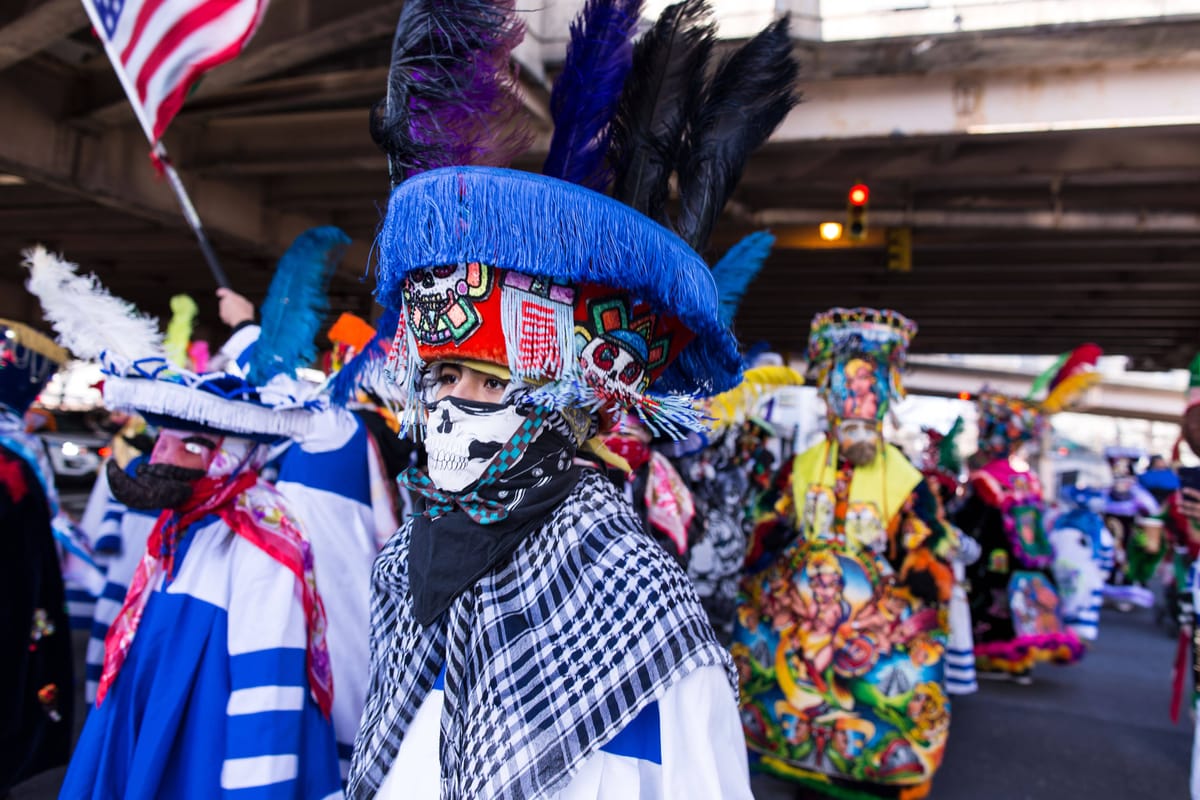

WILLIAMSBURG — The cold, windy weather didn’t deter community organizations, folk dancers, musical performers, and children from parading, bringing smiles to onlookers gathered along Graham Avenue in Williamsburg on Sunday, January 5, to see the traditional Three Kings Day parade.
For Alejandro Zayas, the Public Relations Director of the Three Kings Parade and Festival, the day is an opportunity to “show our youth our cultural tradition of the Three Kings.”
Bringing young people to engage with their cultural traditions inspired Radamés Millán, president of the Three Kings Day parade, to create the parade 23 years ago.
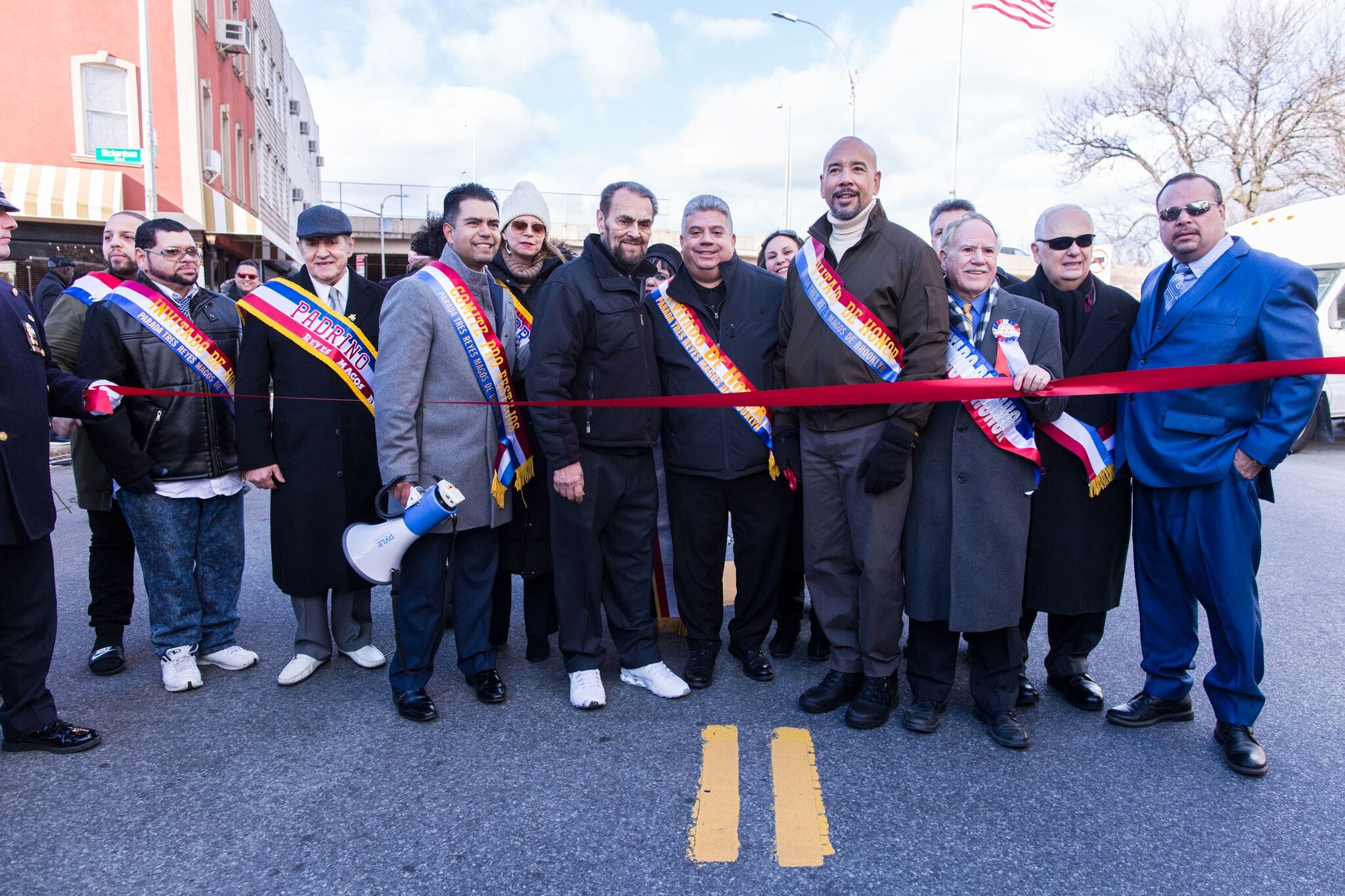
“I thought that it was very important that people should know about our tradition of the Three Kings Day,” he said. “Since then we have been doing the event and it has been successful.”
“I believe we need to learn more about diverse ethnic groups and their traditions. By supporting and respecting each other’s traditions there will be a better and safer place for all of us in a neighborhood. I personally expressed my deepest thanks to District Leader Tommy Torres and all the members of the Three Kings Parade Committee for their hard work in keeping this important Hispanic Tradition celebrated,” Assemblymember William Colton added.
In Latin America, Spain and some U.S. cities with large Catholic populations, Three Kings Day is an important celebration. It’s based on the Christian story of Caspar, Melchior, and Balthazar, the Three Kings, also known as the Three Wise Men, guided by the star of Bethlehem to where baby Jesus lay in Bethlehem. Riding camels, they brought gifts of gold, frankincense, and myrrh, an anointing oil.
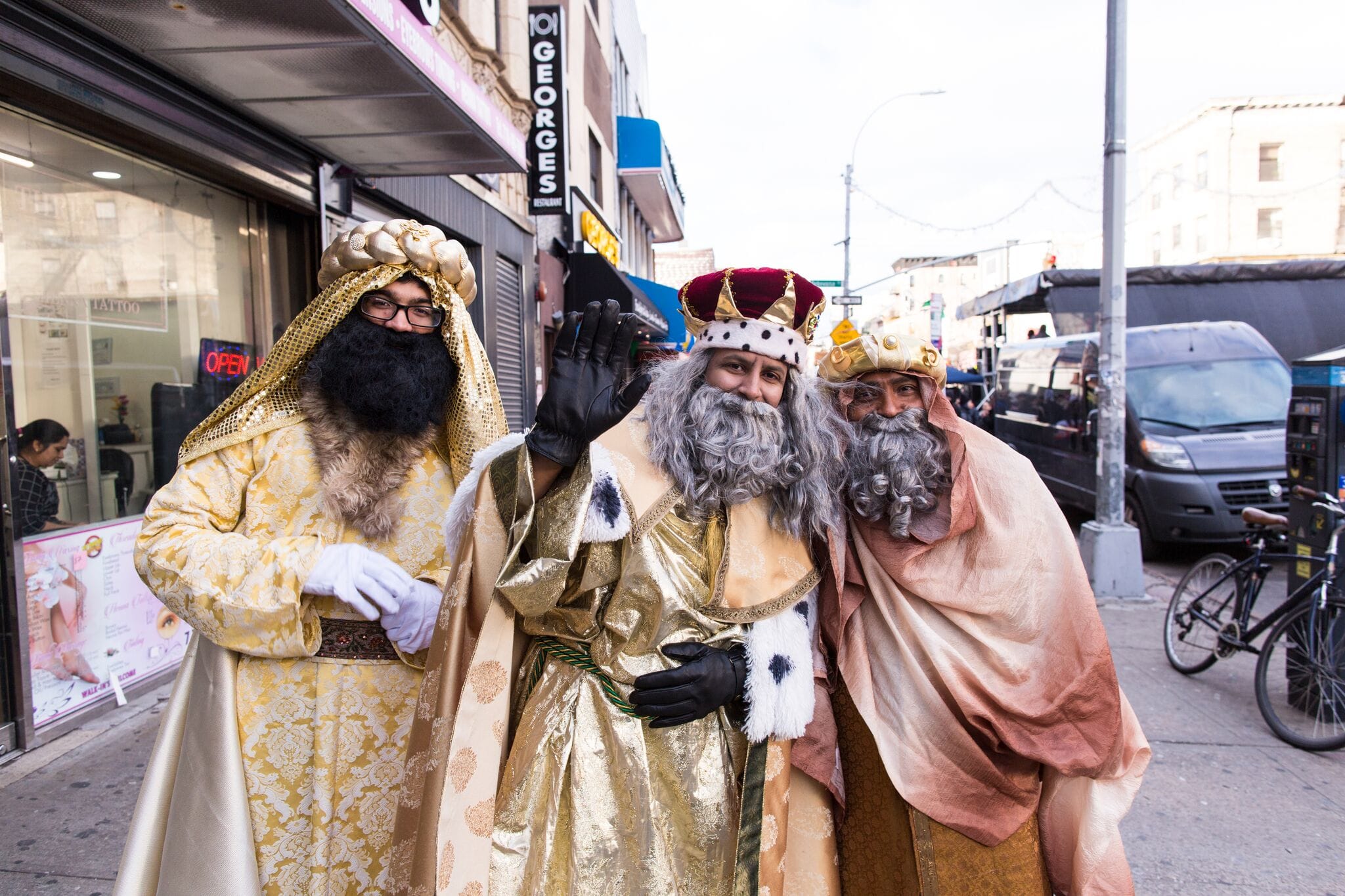
Modern practices vary depending on the country following the tradition. Kids may write a letter to the Kings asking for gifts and leave a box of grass or hay under their bed or by a window for the camels. The Kings are left water or milk. In some countries, a traditional Rosca de Reyes — Three Kings Bread or Cake — is eaten.
The festival takes place amid a decline in the Latinx population in the Williamsburg and Greenpoint area, many of whom can no longer afford the rents. From 2000 to 2015, there was a decrease of about 15,000 Latinx residents in Greenpoint and Williamsburg despite a population increase of over 20,000 during the same time period.
“I love this parade,” said Siobhan O’Grady, 39, of Greenpoint, who has lived most of her life in Brooklyn. “I’ve seen it a couple of times. I think it’s very sweet. I’m glad that there’s still a community here that celebrates this.”
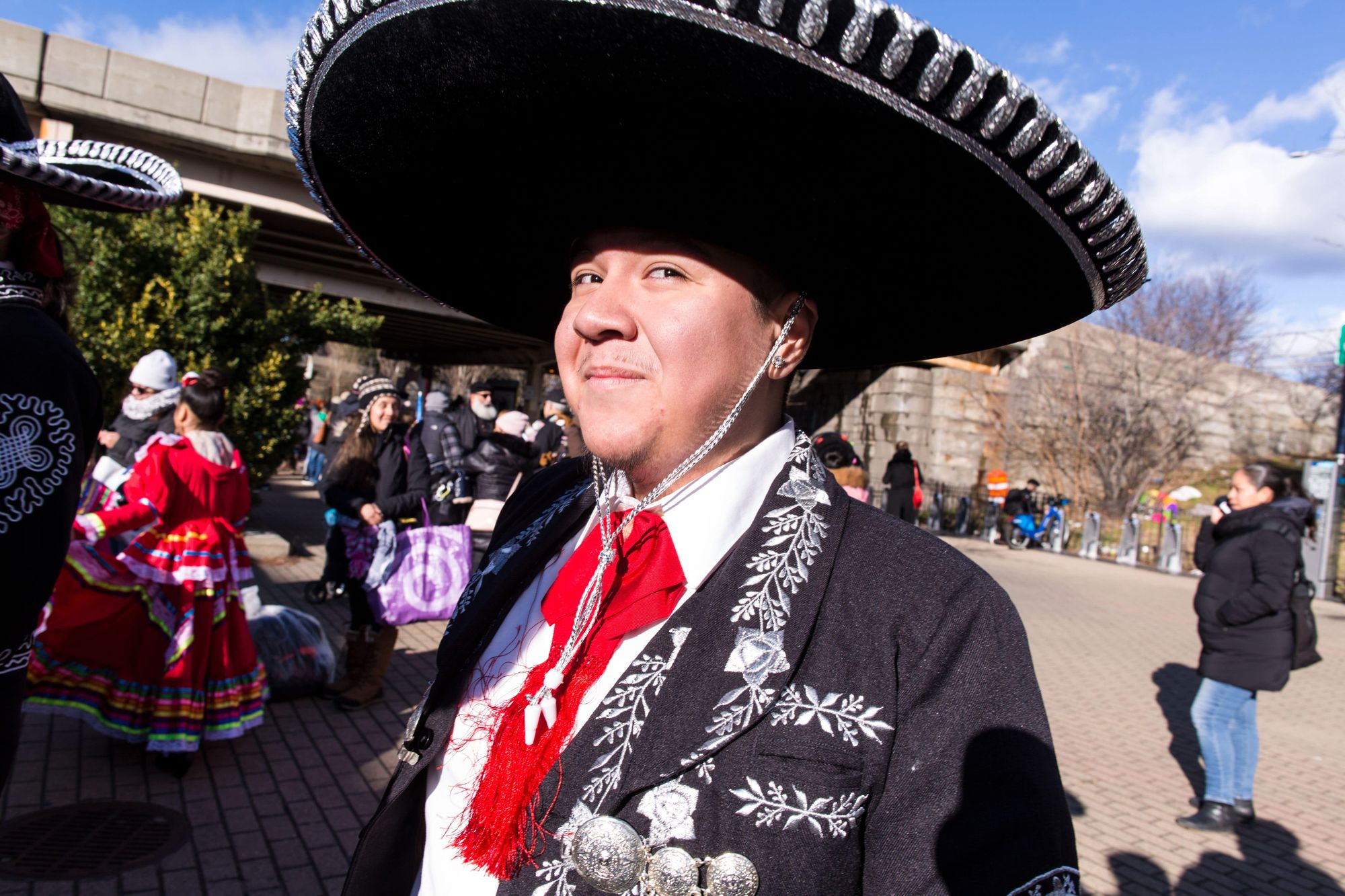
The rapidly changing neighborhood has highlighted the call to strengthen cultural traditions.
“That’s why it’s important for people of all races to celebrate each other’s culture so it doesn’t die out, right?” said City Councilman Robert E. Cornegy Jr. from District 36, which represents Bed-Stuy and Crown Heights. “If you see in the streets, many people are new to the community, so they need to be educated on what these celebrations mean to us. As long as we do this, I think they’ll never die.” Cornegy is running for the Brooklyn Boro President’s seat in 2021.
Perhaps this is the reason many community organizations, participate in events like Three Kings Day.
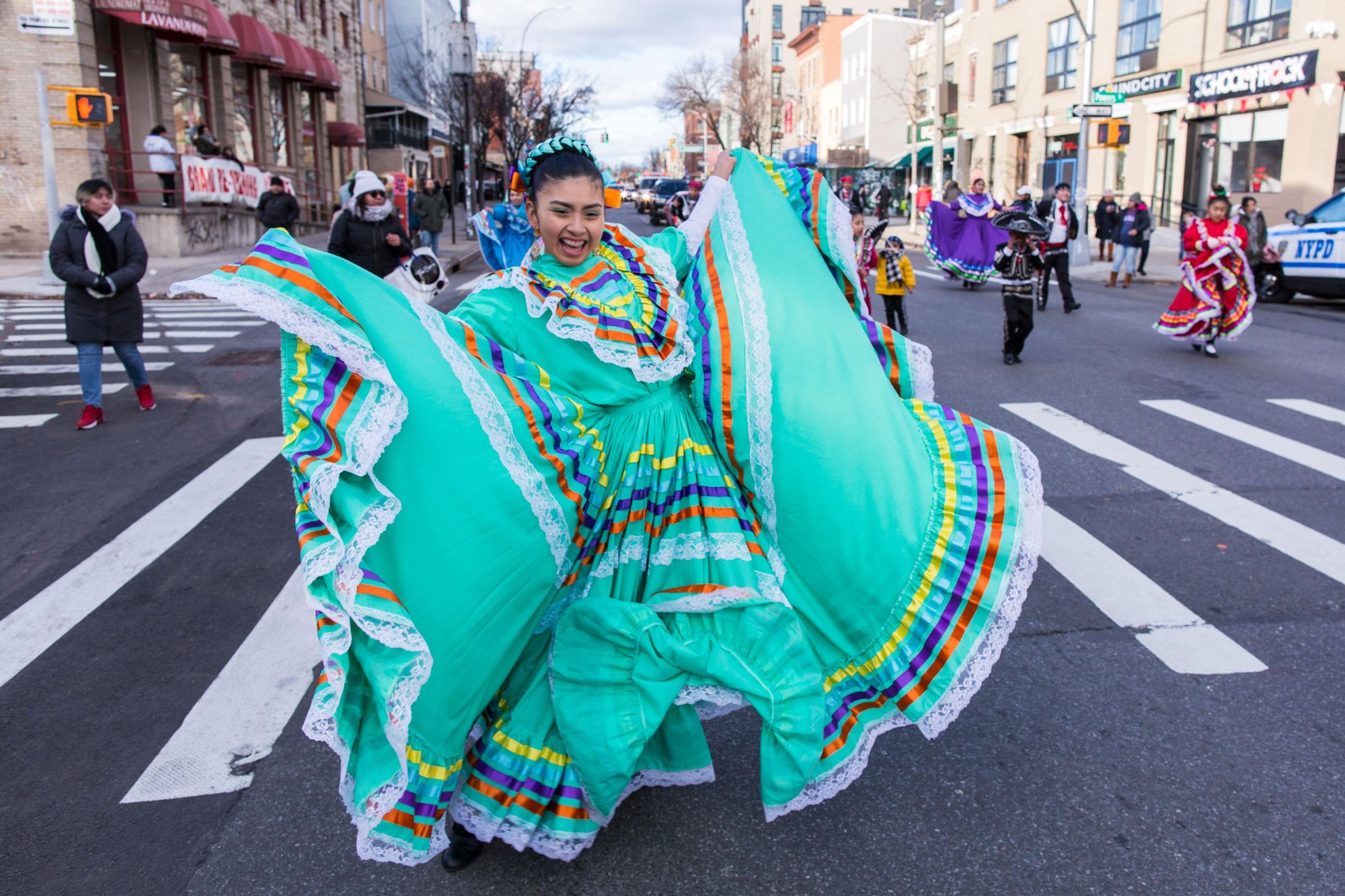
“It’s something that’s symbolic for puertorriqueños, and Latinos across the Caribbean,” said Jasmin Sanchez, program director at El Puente’s Beacon Leadership Center, a multifaceted program offering community services in Williamsburg. “It’s something that’s important for us to really instill in our young people.”
“El Puente has been very diligent in doing is keeping the custom of Latinos in Brooklyn,” she added. “And also really just affirming that while there are folks moving into our communities, we’re still here; we’re present.”
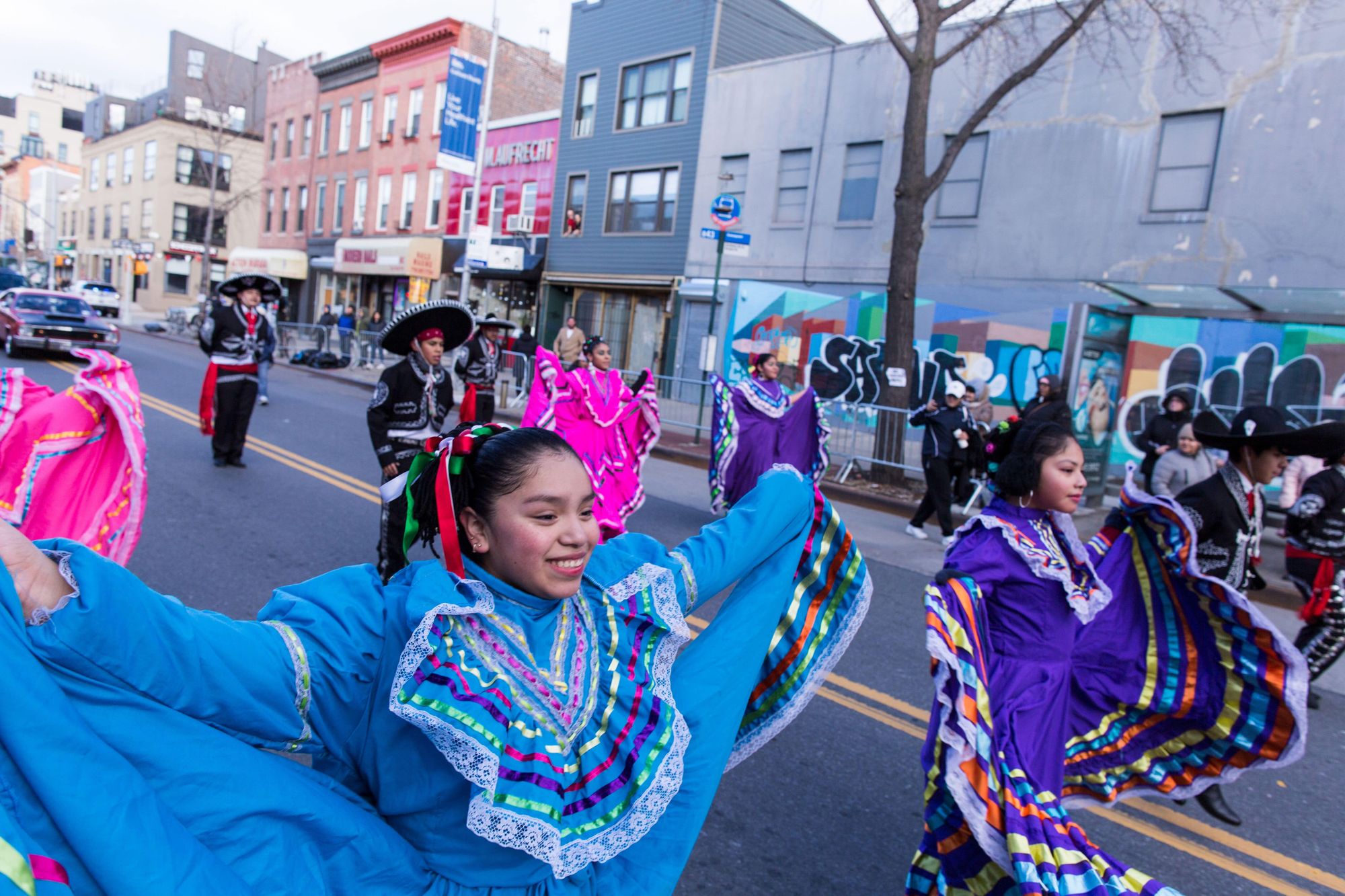
Jacqueline Mesa, 19, was aware of the importance of tradition. She was part of a Mexican folk dancing group marching in the parade.
“I just think that it is very meaningful that we do this every year because it just brings back to the culture itself and the traditions that we hold,” she said. “I feel like as a millennial too, I am going to be able to carry this throughout my whole life. I just feel grateful.”




